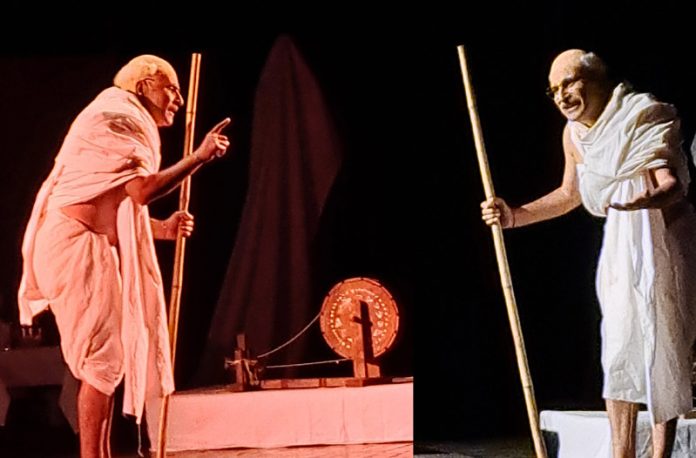
Ravinder Kaul
JAMMU, Nov 6: Between the period of a little over five months from August 15, 1947, when India gained independence, and January 30, 1948, when he succumbed to the bullets of an assassin, what was going on in the mind of Mahatma Gandhi or Bapu as he was known among the people of this country? All the principles that he held on to throughout his life, non-violence, peace, religious tolerance, opposition to Two-Nation Formula, were being smashed to smithereens before his very eyes and he could do nothing about it. Communal riots were raging in the streets of his beloved nation. Congress, the party that he nurtured, had already accepted the Two Nation Formula of the British, much against his wishes. All his lifelong disciples and his much loved colleagues were not consulting him, in fact were avoiding him. He was a broken man and as is a well known historical fact, he did not take any part in India’s Independence celebrations and was busy in dousing the communal fires that were raging in different parts of the country.
This is the subject matter of the play presented by J&K Academy of Art, Culture and Languages in connection with the celebration of 154th birth anniversary of the ‘Father of the Nation’, Mahatma Gandhi, at Abhinav Theatre on Monday. Written by Nand Kishore Acharya, an eminent playwright and recipient of both Sahitya Akademi as well as Sangeet Natak Akademi Awards, the theme of the play is as relevant today as it was in March 2006, when the play was first published in the Natrang magazine published from New Delhi.
What is presented in the play is a fictional account, conceived by the author, as to what could Mahatma Gandhi be thinking at that point of time. As happens in most historical fiction, the setting is real, the incidents are real but the thoughts are conceived by the author based of his own understanding of the happenings. We do not have anything to suggest as to what the other persons’, Jawaharlal Nehru, Sardar Patel, Maulana Azad, Rajendra Prasad and others, who are mentioned repeatedly during the monologue, point of view was. Yet the issues raised in the play are not dated. These have great contemporary relevance.
It is a unique play in the sense that there is only one character on stage, Mahatma Gandhi, who keeps the audience glued to each word that he utters and each gesture he makes for over one hour duration of the play. J.R.Sagar, one of the most outstanding theatre actors of J&K, superbly portrayed the role of Bapu and kept the audience spellbound through his speech, his subtle movements and gestures.
The play was directed by Dr. Sudhir Mahajan, a veteran of Jammu Theatre and Senior Drama Instructor at the Academy. The set was designed and executed by Veer Ji Sumbli , while light was designed by Ravinder Sharma, himself a competent theatre director, in a very creatively and innovative manner.
The music effects arranged by Rajat Gupta, included the Bhajans that were very dear to Mahatma Gandhi, which helped in revealing the inner turmoil and emotional tension of the character. Make Up by Dr. Kamal Sharma transformed the personality of the actor into the character that he was portraying on stage.
Secretary JKAACL, Bharat Singh, expressed his resolve to present this play at multiple locations within J&K and outside. This was in fact reiterated by S.P.Verma, Vice President, Gandhi Global Family and recipient of Padma Shri, who was all praise for the play.

